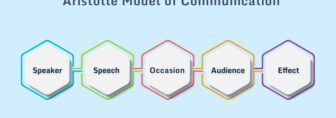Cracking The Gate ECE Exam: Essential Subjects And Weightage Analysis

The Graduate Aptitude Test in Engineering (GATE) is one of the most prestigious examinations in India for aspiring engineers. Conducted jointly by the IISc (Indian Institute of Science) and seven Indian Institutes of Technology (IITs), it serves as a gateway to postgraduate programs in engineering and technology.
For candidates looking to pursue a Master’s or Ph.D. in Electronics and Communication Engineering (ECE), cracking the exam is crucial. To succeed in this competitive exam, it is essential to understand the subjects and their weightage in the gate syllabus of ece. This article provides an overview of the subjects and weightage analysis.
Networks And Signals:
It is a fundamental subject and serves as the backbone of the field. It covers topics such as network theorems, transient and steady-state analysis, frequency response, and Fourier series. It carries significant weightage, accounting for approximately 10-12% of the total marks. To excel, candidates should focus on understanding the theoretical concepts as well as their practical applications.
Electronic Devices And Circuits:
It deals with the study of diodes, transistors, amplifiers, and other electronic components. Candidates should have a solid understanding of the characteristics and applications of these devices. This subject carries a weightage of around 8-10% in the GATE ECE exam. To master this subject, it is advisable to delve into the underlying principles and practice solving numerical problems.
Digital Electronics:
Digital Electronics focuses on the design and analysis of digital circuits. It covers topics such as logic gates, flip-flops, counters, and registers. A strong grasp of Boolean algebra, combinational and sequential circuits, and logic families is crucial. Digital Electronics holds a weightage of approximately 8-10%. To excel, candidates should practice designing and implementing digital circuits using various logic gates and understand the principles of logic synthesis.
Control Systems:
Control Systems deal with the principles and techniques used in controlling and regulating dynamic systems. It covers topics such as transfer functions, block diagrams, stability analysis, and frequency response. Control Systems carries a weightage of around 10-12%. To excel in this subject, candidates should focus on understanding the concepts of feedback control, stability, and the design of control systems.
Communication Systems:
Communication Systems is a vital subject, covering topics such as amplitude modulation, frequency modulation, pulse modulation, and digital communication techniques. Understanding the concepts of modulation, demodulation, and noise in communication systems is essential. It holds a weightage of approximately 10-12%. Candidates should focus on understanding the different modulation techniques, signal transmission, reception, and digital communication systems.
Electromagnetic Theory:
Electromagnetic Theory focuses on Maxwell’s equations, wave propagation, transmission lines, and antennas. It requires a strong understanding of vector calculus and electromagnetic field theory. Electromagnetic Theory carries a weightage of around 8-10%. To excel, candidates should focus on understanding the concepts of electromagnetic waves, transmission lines, and antenna theory.
Analog Circuits:
Analog Circuits deal with the design and analysis of electronic circuits using operational amplifiers, filters, oscillators, and other analog components. Knowledge of transistor amplifiers, feedback amplifiers, and frequency response is essential. Analog Circuits hold a weightage of approximately 8-10%. Candidates should focus on understanding the various circuit configurations and their applications and the design principles of amplifiers and filters.
Signals And Systems:
Signals and Systems focus on the analysis and representation of continuous and discrete-time signals and linear time-invariant systems. Understanding concepts such as convolution, Fourier series, and Laplace transforms is crucial. It carries a weightage of around 6-8%. To excel, candidates should focus on understanding the properties of signals and systems and their mathematical representations and analysis techniques.
Conclusion
Cracking the exam requires a thorough understanding of the essential subjects and their weightage of the gate syllabus of ece. Focus on building a strong foundation in the fundamental subjects while allocating time for other relevant topics. With consistent effort, practice, and a well-planned study strategy, you can pave the way for a promising career in Electronics and Communication Engineering.
Read Also:
- Types Of Assessment Tools In Education
- Relational Dialectics Theory – Definition, Examples, Pros & Cons
- Review Essays: Evaluating Books, Films, Or Works Of Art With Critical Analysis

























